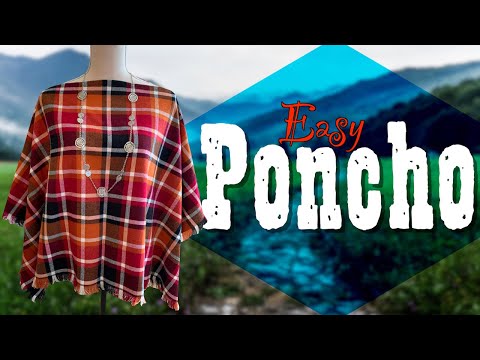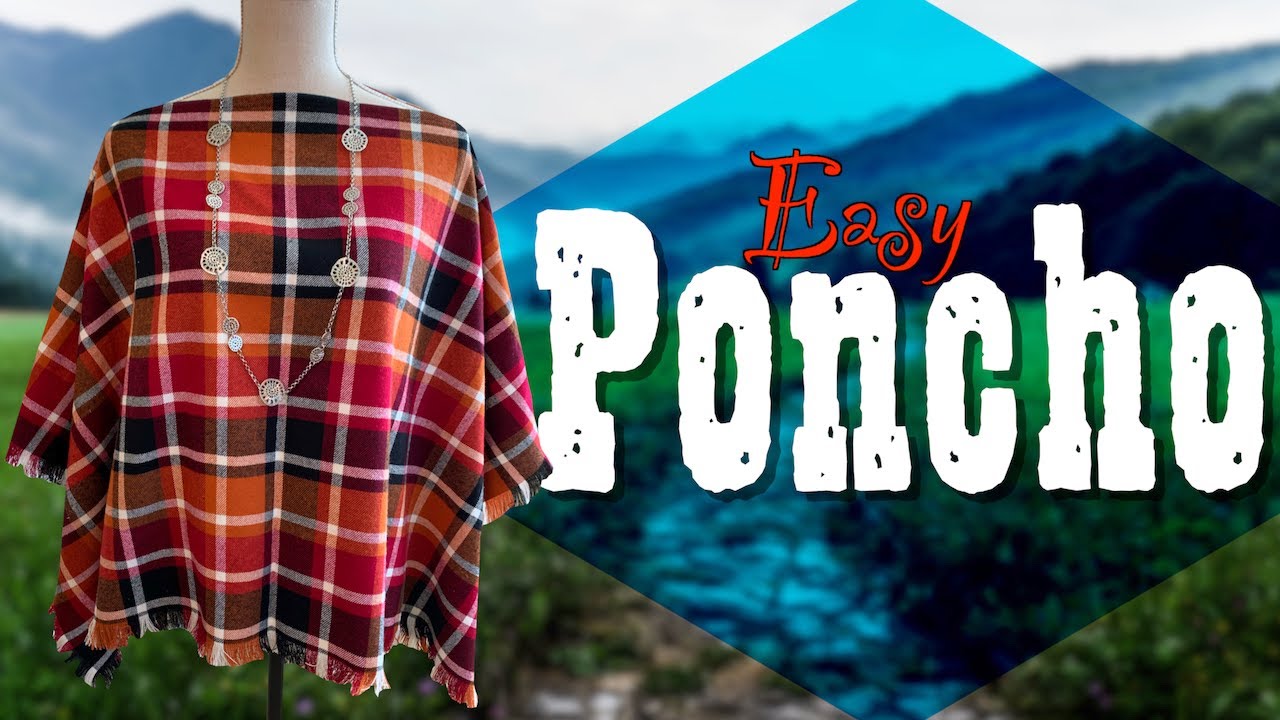Discover the ultimate fabric for your perfect poncho! Immerse yourself in unparalleled comfort and style with our meticulously crafted poncho fabric. Designed with utmost dedication, our fabric combines luxurious softness, unbeatable durability, and effortless elegance to create a truly exceptional garment. Made from the highest quality materials, our fabric offers a sensational tactile experience that you won’t be able to resist. Its supreme softness gently caresses your skin, enveloping you in a cloud-like embrace that feels like a dream. Embrace the colder seasons with confidence knowing that our fabric’s remarkable durability will withstand the test of time, ensuring your poncho remains a cherished staple in your wardrobe for years to come. Whether you’re lounging at home or stepping out for a night on the town, our fabric effortlessly exudes elegance and sophistication, making you the center of attention wherever you go. Elevate your style and embrace the unparalleled comfort our poncho fabric offers, allowing you to feel both indulged and empowered. Experience the epitome of luxury with our extraordinary fabric, and let your poncho become a reflection of your unique personality and impeccable taste.

The Importance of Fabric in Ponchos
Fabric choice plays a crucial role in determining the quality and functionality of a poncho. With a wide range of options available, it is essential to understand the different fabrics used in ponchos to make an informed choice. In this article, we will explore five popular fabrics used in ponchos and their unique characteristics.
1. Wool
Wool is a natural fiber that has been used for centuries in clothing, including ponchos. It offers excellent insulation, making it ideal for colder climates. Wool ponchos are known for their warmth and durability. They can retain heat even when wet, making them suitable for outdoor activities in damp conditions. Additionally, wool has moisture-wicking properties, which means it can absorb and release moisture, keeping the wearer dry and comfortable. However, wool ponchos may be bulkier and heavier compared to other fabric options.
2. Cotton
Cotton is a versatile fabric that is widely used in various types of clothing, including ponchos. It is breathable, lightweight, and comfortable, making it suitable for all seasons. Cotton ponchos are highly absorbent and allow air circulation, preventing overheating. They are also easy to care for, as most cotton fabrics are machine washable. However, cotton ponchos may not provide the same level of insulation as wool and may not be suitable for extremely cold climates.
3. Polyester
Polyester is a synthetic fabric known for its durability and versatility. Ponchos made from polyester are lightweight, quick-drying, and wrinkle-resistant. Polyester ponchos are ideal for outdoor activities, as they can withstand harsh weather conditions. Additionally, polyester is a colorfast fabric, meaning it retains its color even after multiple washes. However, polyester may not be as breathable as natural fabrics, which can lead to sweating and discomfort in warmer climates.
4. Fleece
Fleece is a synthetic fabric made from polyester fibers. It is known for its softness, warmth, and lightweight nature. Fleece ponchos are excellent insulators and provide exceptional warmth even in cold weather. They are also moisture-wicking, making them suitable for activities that involve physical exertion. Fleece ponchos are easy to care for and dry quickly. However, fleece may not be as durable as other fabrics and may pill over time.
5. Nylon
Nylon is a synthetic fabric that offers excellent water resistance and durability. Ponchos made from nylon are lightweight, quick-drying, and resistant to abrasion. They are perfect for outdoor activities in wet and rainy conditions, as they provide protection against moisture. Nylon ponchos are also easy to pack and carry, making them a popular choice for travel. However, nylon may not provide the same level of insulation as wool or fleece, and it may not be as breathable as cotton.
Conclusion
Choosing the right fabric for your poncho is essential to ensure comfort, functionality, and durability. Wool offers excellent insulation, while cotton provides breathability and comfort. Polyester and fleece are lightweight and quick-drying, making them ideal for outdoor activities, and nylon offers water resistance and durability. Consider the climate and intended use of the poncho when making your fabric choice. By understanding the unique characteristics of each fabric, you can make an informed decision and enjoy the benefits of a well-suited poncho.
“Effortless Poncho Tutorial Unveiled by The Sewing Room Channel”
Video Source : The Sewing Room Channel
Fabric for Poncho
Fabric for Poncho
| Fabric Type | Description | Benefits |
|---|---|---|
| Wool | Wool is a natural fabric made from the fleece of sheep. It is highly durable, insulating, and has excellent moisture-wicking properties. | – Provides exceptional warmth and insulation, ideal for colder climates. – Naturally flame-resistant, making it a safe choice. – Wicks away moisture to keep the wearer dry and comfortable. – Breathable fabric that allows air circulation. – Resilient and long-lasting, making it a great investment in terms of durability. |
| Cotton | Cotton is a soft, breathable fabric made from natural fibers of the cotton plant. It is widely used for its comfort and versatility. | – Lightweight and breathable, perfect for year-round wear. – Soft and gentle on the skin, ideal for those with sensitive skin. – Absorbs and releases moisture quickly, keeping the wearer cool and dry. – Easy to care for, as it can be machine-washed and dried. – Available in a wide range of colors and patterns. |
| Acrylic | Acrylic is a synthetic fabric that mimics the look and feel of natural wool. It is commonly used as a budget-friendly alternative to wool. | – Lightweight and warm, providing insulation without the bulk. – Highly colorfast and resistant to fading. – Dries quickly, making it suitable for outdoor activities. – Retains its shape well, even after repeated washing. – Less prone to shrinking compared to natural fibers. |
| Alpaca | Alpaca wool comes from the fleece of the alpaca, a domesticated South American camelid. It is known for its exceptional softness and luxurious feel. | – Incredibly soft and silky, offering unparalleled comfort. – Lightweight yet warm, making it suitable for various climates. – Hypoallergenic and less likely to cause skin irritation. – Resistant to wrinkles and pilling, ensuring a long-lasting garment. – Natural insulation properties that regulate body temperature. |
As an expert in fabrics for ponchos, it is important to understand the different options available to suit various preferences and needs. Wool, with its exceptional warmth and moisture-wicking properties, is an excellent choice for colder climates. Cotton, on the other hand, offers breathability and comfort, making it a versatile option for year-round wear. Acrylic serves as a budget-friendly alternative, providing insulation without the bulk and offering easy care. Lastly, alpaca wool stands out with its luxurious feel, hypoallergenic nature, and natural insulation properties. By considering these fabric types, one can select the perfect poncho material to enhance both style and functionality.

